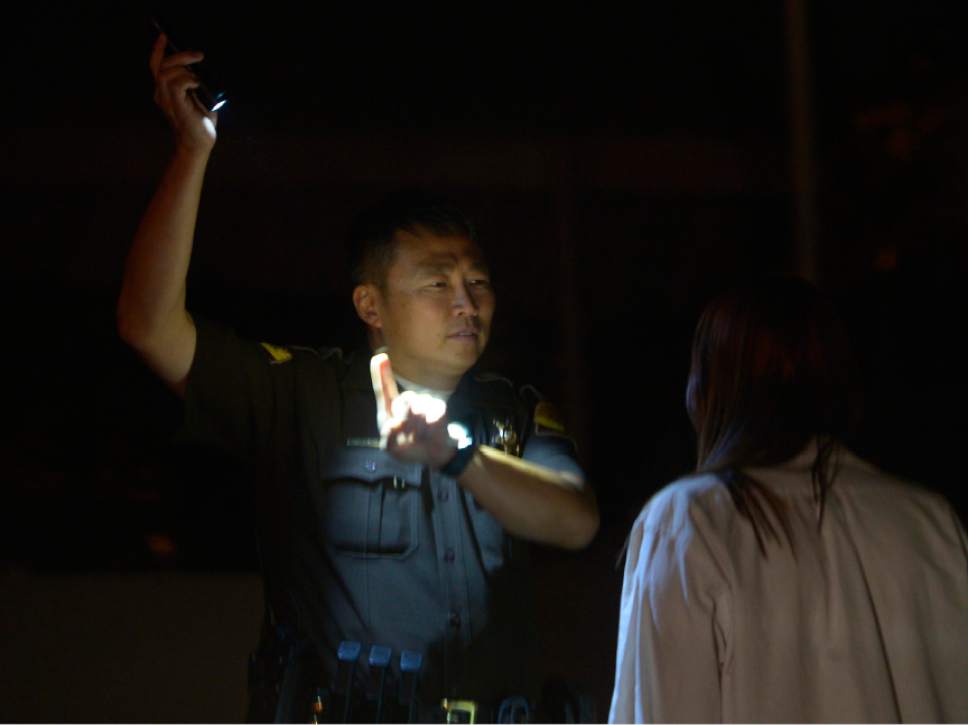This is an archived article that was published on sltrib.com in 2017, and information in the article may be outdated. It is provided only for personal research purposes and may not be reprinted.
Lawmakers took a first step Friday to make Utah the first state in the nation to lower its legal limit for driving under the influence to a 0.05 blood-alcohol content — which an average male adult could reach at thee drinks, and a female at two.
The House Law Enforcement Committee voted 9-2 to pass HB155, and sent it to the full House.
Bella Dinh-Zarr, vice chairwoman of the National Transportation Safety Board (NTSB), traveled to Utah to testify for the bill.
"I am not here today to stop people from drinking," she said. "I am here to stop people from dying."
She said more than 100 nations already use the 0.05 level, instead of the 0.08 now used in Utah and most states. Commercial truck drivers in the United States have an even-lower BAC limit of 0.04. Young drivers in Utah may not have any alcohol in their blood until they reach age 21.
She said the NTSB figures that if all states went to 0.05, it would save 1,800 lives nationally this year because of drivers who are in crashes who are still impaired with a BAC between 0.05 and 0.79.
Drivers at those lower levels, she said, "are seven times more likely to be involved in a single-driver fatal crash than drivers without any alcohol in their system."
The biggest impact of a 0.05 level is it sends a message that people simply should not drink and drive — not that they could have a drink or two and still drive, Dinh-Zarr said. "It's about separating drinking from driving."
She said in other countries, "They drink more, yet they die less because of a .05 BAC" and its discouragement of drinking and driving.
The sponsor of the bill, Rep. Norm Thurston, R-Provo, predicted the proposed change could create a smaller-than-expected increase in DUIs. He said that's because police who suspect a DUI may pull over someone only if they are driving erratically. Then they must conduct a field sobriety test.
Only those who fail the sobriety test — such as walking a straight line — are arrested for driving impaired, and then are tested to determine their BAC.
But Sean Druyon, representing the Utah Association of Criminal Defense Lawyers, said the bill does not strike a good balance between individual freedoms and safety, and may lead to charges against some drivers who truly are not impaired.
He also said it may hurt tourism in Utah, which already has a reputation for arcane liquor laws.
"How is this going to impact tourism in Utah? I think it's going to be significant," Druyon said. "You're a tourist coming to Utah. It's something you're going to think about."
Rep. Paul Ray, R-Clearfield, doubted that. "Who says, 'I'm not going to Europe because it's a 0.05'" there?
Rep. Kelly Miles, R-South Ogden, said, "I'm willing to risk the potential loss of tourism, maybe the increase in DUI arrests … because I think it will send a message" not to drink and drive.
The Libertas Institute, which pushes for individual freedom, opposed the bill, saying DUI laws should only be enforced when someone's actions hurts others through a crash.
The bill would not take effect until Dec. 30, 2018. Thurston said that would give extra time to work through any issues. And enactment just before the New Year's holiday would bring extra publicity to the change.



